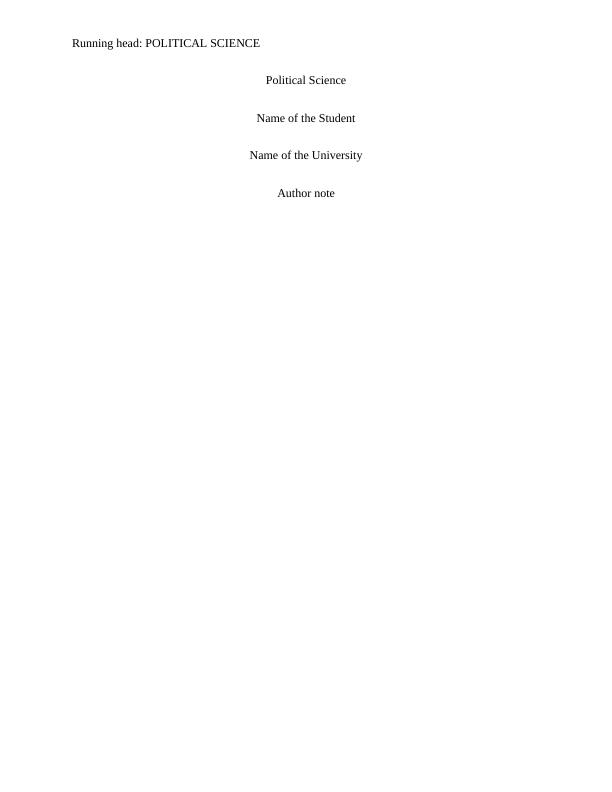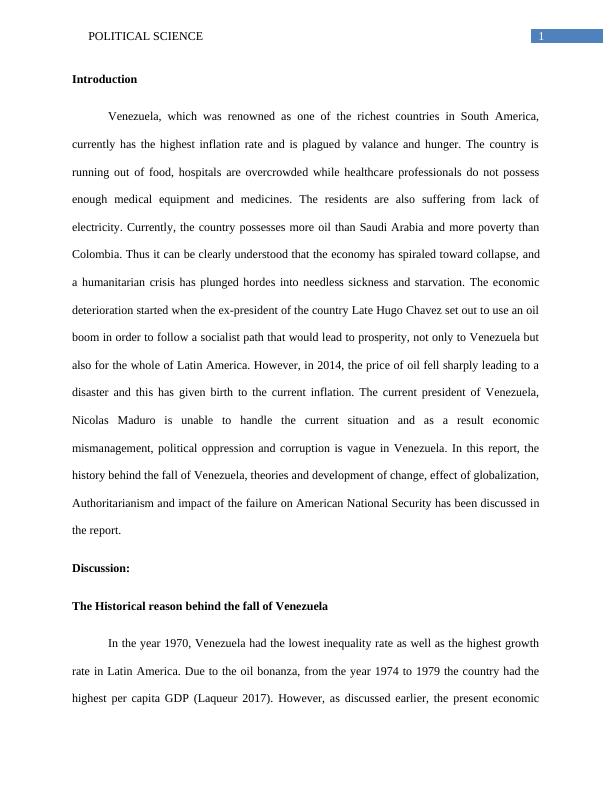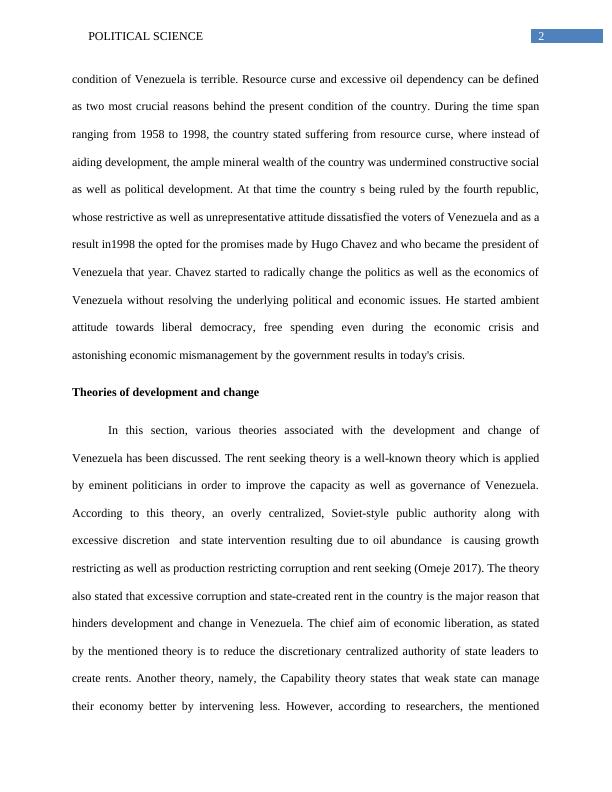The Fall of Venezuela: History, Theories of Development and Change, Authoritarianism, and Impact on American National Security
8 Pages2144 Words497 Views
Added on 2023-06-10
About This Document
This report discusses the history behind the fall of Venezuela, theories and development of change, effect of globalization, authoritarianism, and impact of the failure on American National Security.
The Fall of Venezuela: History, Theories of Development and Change, Authoritarianism, and Impact on American National Security
Added on 2023-06-10
ShareRelated Documents
End of preview
Want to access all the pages? Upload your documents or become a member.
Democracy and Development .
|9
|2044
|94
Macroeconomic Performance and Stability of Venezuela Economy
|15
|3058
|160



